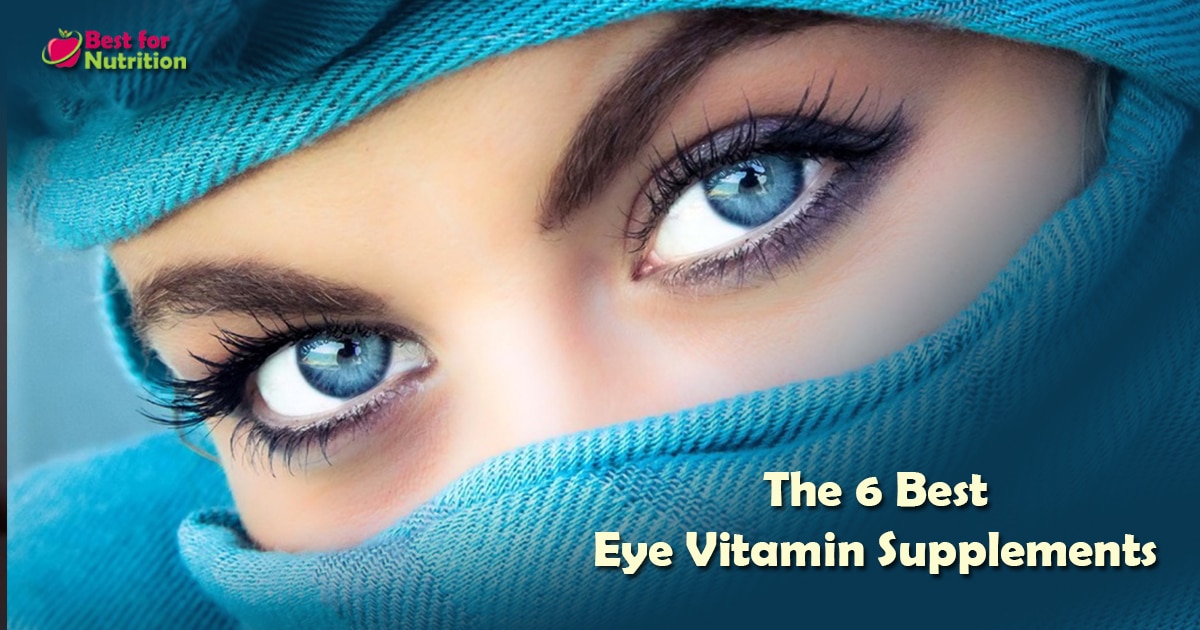Our eyes are remarkable organs, allowing us to experience the world in vivid detail. However, maintaining optimal eye health requires more than just regular check-ups and corrective lenses; it also involves proper nutrition. Certain vitamins and nutrients are crucial for preserving vision and preventing eye diseases. This article explores the most important vitamins for eye health, their functions, and how they can protect against common eye conditions.

1. Vitamin A and Beta-Carotene
Role in Eye Health: Vitamin A is perhaps the most well-known nutrient associated with eye health. It is vital for maintaining the photoreceptor cells in the retina, which are essential for vision. Vitamin A is also a component of rhodopsin, a protein in the eyes that allows you to see in low light conditions.
Prevention of Eye Conditions: A deficiency in Vitamin A can lead to night blindness and more severe conditions like xerophthalmia, a disease characterized by dryness of the cornea and conjunctiva that can lead to blindness if untreated. Beta-carotene, a precursor to Vitamin A found in many fruits and vegetables, is also essential as it converts into Vitamin A in the body, helping maintain proper vision.
Food Sources: Foods rich in Vitamin A include liver, dairy products, and fish. Beta-carotene is abundant in colorful vegetables and fruits like carrots, sweet potatoes, spinach, and kale.
Supporting Research: Studies have consistently shown that adequate intake of Vitamin A is essential for preventing night blindness and other vision-related issues. For instance, the World Health Organization (WHO) has emphasized the importance of Vitamin A supplementation in preventing childhood blindness in developing countries .
2. Vitamin C (Ascorbic Acid)
Role in Eye Health: Vitamin C is a powerful antioxidant that protects the eyes from damage caused by free radicals, which are unstable molecules that can cause cellular damage. This vitamin is also essential for the production of collagen, a protein that provides structure to the cornea and sclera.
Prevention of Eye Conditions: Vitamin C has been linked to a reduced risk of cataracts, a condition where the lens of the eye becomes cloudy, leading to impaired vision. Moreover, its antioxidant properties help to slow down the progression of age-related macular degeneration (AMD), a leading cause of vision loss in older adults.
Food Sources: Citrus fruits like oranges, lemons, and grapefruits are excellent sources of Vitamin C. Other good sources include strawberries, bell peppers, broccoli, and Brussels sprouts.
Supporting Research: The Age-Related Eye Disease Study (AREDS) conducted by the National Eye Institute (NEI) found that high doses of Vitamin C, along with other antioxidants, could reduce the risk of developing advanced AMD by about 25% . This finding underscores the importance of Vitamin C in preserving eye health as we age.
3. Vitamin E
Role in Eye Health: Vitamin E is another powerful antioxidant that protects the eyes from oxidative stress. This stress is caused by free radicals, which can lead to the deterioration of healthy eye cells and contribute to the development of various eye diseases.
Prevention of Eye Conditions: Research suggests that Vitamin E may help prevent cataracts and slow the progression of AMD. By neutralizing free radicals, Vitamin E reduces the oxidative stress that can lead to these conditions.
Food Sources: Nuts and seeds, such as almonds, sunflower seeds, and hazelnuts, are rich sources of Vitamin E. Additionally, green leafy vegetables, fortified cereals, and vegetable oils like sunflower and safflower oil also contain high levels of Vitamin E.
Supporting Research: The AREDS study also highlighted the role of Vitamin E in reducing the risk of AMD. Participants who consumed a combination of Vitamin C, Vitamin E, beta-carotene, and zinc showed a significant reduction in the progression of AMD compared to those who did not take the supplements .
4. Vitamin D
Role in Eye Health: Vitamin D is primarily known for its role in bone health, but emerging research suggests it may also play a role in eye health. Vitamin D receptors are found in various parts of the eye, indicating that it may have a role in maintaining ocular health.
Prevention of Eye Conditions: Low levels of Vitamin D have been associated with an increased risk of AMD. Additionally, Vitamin D’s anti-inflammatory properties may help reduce the risk of uveitis, an inflammatory condition affecting the middle layer of the eye.
Food Sources: Vitamin D can be obtained from exposure to sunlight, but it is also found in foods like fatty fish (salmon, mackerel, sardines), fortified dairy products, and eggs.
Supporting Research: A study published in the journal JAMA Ophthalmology found that individuals with higher levels of Vitamin D had a lower risk of developing AMD . This suggests that maintaining adequate Vitamin D levels may be beneficial for eye health.
5. Lutein and Zeaxanthin
Role in Eye Health: Lutein and zeaxanthin are carotenoids, pigments found in high concentrations in the retina. They act as natural sunglasses by filtering harmful blue light and protecting the eye’s photoreceptor cells from damage.
Prevention of Eye Conditions: These carotenoids are particularly effective in reducing the risk of AMD and cataracts. They help maintain the integrity of the macula, the part of the retina responsible for central vision, and protect against the oxidative stress that contributes to these conditions.
Food Sources: Lutein and zeaxanthin are found in green leafy vegetables like spinach, kale, and collard greens. They are also present in eggs, corn, and orange and yellow fruits and vegetables.
Supporting Research: The AREDS2 study, a follow-up to the original AREDS, confirmed that lutein and zeaxanthin supplementation could further reduce the risk of AMD when added to the original AREDS formula . This finding has led to the inclusion of these carotenoids in many eye health supplements.
6. Omega-3 Fatty Acids
Role in Eye Health: Omega-3 fatty acids, particularly DHA (docosahexaenoic acid), are essential for maintaining the structural integrity of retinal cells. They also play a crucial role in reducing inflammation and supporting overall eye health.
Prevention of Eye Conditions: Omega-3 fatty acids are beneficial in preventing dry eye syndrome, a condition where the eyes do not produce enough tears, leading to irritation and discomfort. Additionally, Omega-3s have been linked to a lower risk of AMD and diabetic retinopathy, a complication of diabetes that affects the eyes.
Food Sources: Fatty fish like salmon, mackerel, and sardines are excellent sources of Omega-3 fatty acids. Flaxseeds, chia seeds, and walnuts also provide plant-based Omega-3s.
Supporting Research: A study published in the Journal of the American Medical Association found that individuals with a higher intake of Omega-3 fatty acids had a significantly reduced risk of developing AMD . Another study in Investigative Ophthalmology & Visual Science highlighted the benefits of Omega-3s in managing dry eye syndrome .
Conclusion
Proper nutrition plays a vital role in maintaining eye health and preventing vision-related conditions. Vitamins A, C, and E, along with Vitamin D, lutein, zeaxanthin, and Omega-3 fatty acids, are particularly important for protecting the eyes from damage and preserving vision. Incorporating foods rich in these nutrients into your diet, along with regular eye check-ups, can help ensure your eyes remain healthy for years to come.
By understanding the role of these vitamins and nutrients, you can take proactive steps to support your eye health and reduce the risk of developing common eye conditions. Remember, while dietary supplements can be helpful, it is always best to obtain these nutrients from a balanced diet rich in fruits, vegetables, and healthy fats. If you have concerns about your eye health or nutritional needs, consult with a healthcare professional to develop a plan that is right for you.
References
- World Health Organization (WHO). “Vitamin A Supplementation for Preventing Blindness.” WHO (Accessed August 2024).
- National Eye Institute (NEI). “Age-Related Eye Disease Study (AREDS).” NEI (Accessed August 2024).
- JAMA Ophthalmology. “Vitamin D and Age-Related Macular Degeneration.” JAMA Ophthalmology (Accessed August 2024).
- Journal of the American Medical Association (JAMA). “Omega-3 Fatty Acids and Age-Related Macular Degeneration.” JAMA (Accessed August 2024).
- Investigative Ophthalmology & Visual Science. “The Role of Omega-3 Fatty Acids in Dry Eye Syndrome.” IOVS (Accessed August 2024).
These references provide trusted and credible sources to support the information discussed in the article.
